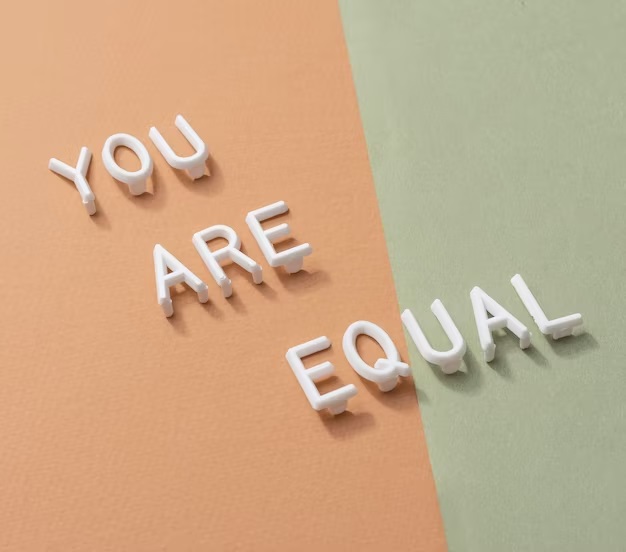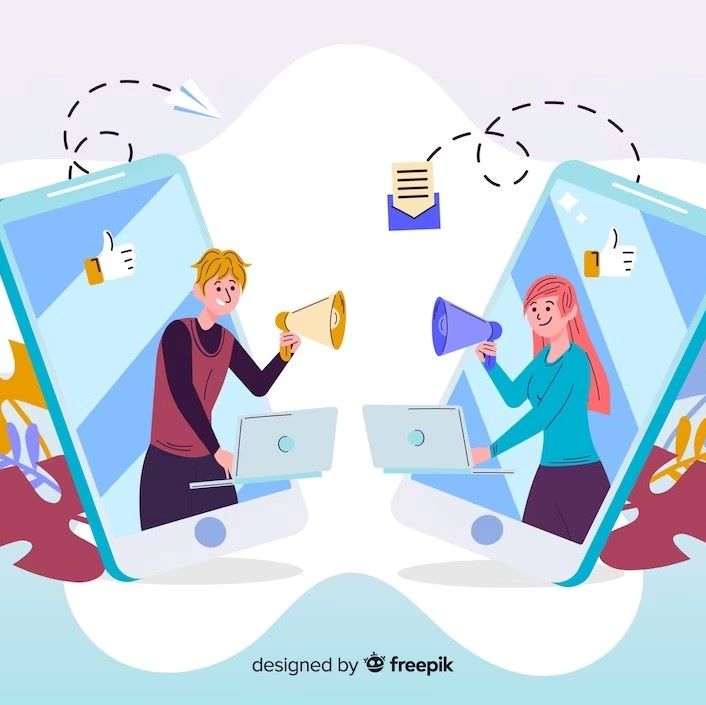Finding the Balance: Compliments vs. Flattery
Gaining the Balance: Knowing the Difference Between Compliments and Flattery
In our everyday interactions, we often encounter people who pay us compliments or say nice things about us. While it is always great to hear kind words, it is essential to understand the difference between a genuine compliment and flattery. Compliments are honest and sincere remarks that recognize someone's positive qualities or achievements. In contrast, flattery is insincere praise that seeks to manipulate or gain favor from someone. It is important to distinguish between the two because flattery can be harmful and manipulative, while compliments contribute to building positive relationships and boosting self-esteem.
To distinguish between compliments and flattery, we need to examine the intent behind the words. Compliments are usually based on specific qualities or actions that we admire in others. They are given with the intention of making someone feel good about their skills, attributes, or accomplishments. Flattery, on the other hand, is often generic and vague, and it often lacks sincerity. It is usually given with the intention of getting something in return, such as a favor, a promotion, or social status. Flattery can be manipulative, and it can damage relationships and trust.
To gain the balance between compliments and flattery, we need to be mindful of the words we use and the motives behind them. When we offer compliments, we should be specific and genuine, focusing on the person's qualities or actions that we admire. We should give compliments freely and without expecting anything in return. On the other hand, we should be cautious about flattery, especially when it comes from people who want something from us. We need to be aware of the manipulative nature of flattery and avoid falling into its trap. By knowing the difference between compliments and flattery, we can build positive relationships, boost our self-esteem, and gain the respect of others.
Engraved Words: Why Compliments and Flattery Matter
Compliments and flattery have a profound impact on people's lives. They boost morale, increase confidence, and make people feel appreciated. Compliments are a way of recognizing someone's achievements, reinforcing good behavior, and offering encouragement. Flattery, on the other hand, can be seen as insincere or manipulative, but when used genuinely, it can have the same effect as compliments. Both compliments and flattery create positive energy and promote healthy relationships.
People have an innate need to be recognized and valued. When we receive compliments, we feel good about ourselves, and that positivity radiates through our interactions with others. Compliments also create a sense of connection and gratitude towards the person giving the compliment. The receiver feels seen and appreciated, and the giver feels good about making someone else's day. Flattery, when used sincerely, can also have this effect, creating a positive emotional connection between the giver and receiver.
Furthermore, compliments and flattery can have long-lasting effects. Research has shown that receiving a compliment can have a significant impact on a person's well-being, leading to increased confidence, self-esteem, and overall happiness. It can also motivate people to continue to improve and excel. Flattery can have similar effects, although the sincerity of the flattery is crucial. In short, compliments and flattery are powerful tools that can have a profound impact on people's lives and the relationships they have with others. It takes only a few words to make someone's day, and the effects can be long-lasting.
Performing the Ritual: How We Use Compliments and Flattery
Compliments and flattery may seem like interchangeable terms, but they have significant differences. While flattery is usually empty praise that seeks to manipulate or deceive, compliments are sincere expressions of admiration or appreciation. In social situations, compliments are not just a way to boost someone's confidence, but they also help to build and maintain relationships. Compliments and other positive words can be powerful tools in the art of persuasion, but the key is to use them honestly and judiciously.
Performing the ritual of giving compliments can be tricky, however. Although it's natural to want to express approval or gratitude, it's important to consider the context and the intended recipient. In many cases, the most effective compliments are specific, timely, and relevant to the person and the situation. As with any social skill, practice makes perfect, so taking the time to learn how to give and receive compliments can pay off in many ways.
Of course, there's also the danger of overdoing it. If compliments are not sincere or if they are given too frequently, they can become meaningless or even annoying. The recipient may feel patronized, manipulated, or suspicious of the motive behind the praise. Overuse of flattery can also backfire, as people may sense the insincerity and react negatively. The key is to strike a balance between honesty, sensitivity, and appropriateness when using compliments and flattery.
For Our Benefit: The Positive Effects of Compliments and Flattery
Psychologists have long recognized the power of positivity, and perhaps there's no better expression of positivity than a well-delivered compliment. Research has shown that the act of giving a compliment can improve not only the recipient's wellbeing, but also the giver's. In fact, compliments have been shown to release the neurotransmitter dopamine, which is associated with pleasure and reward. So, taking the time to offer a sincere compliment isn't just a nice thing to do—it has real, tangible benefits for everyone involved.
Another positive effect of compliments is that they can enhance relationships. When we receive a compliment, we feel seen and valued, which can foster feelings of trust and connection. Similarly, when we give compliments, we demonstrate that we're paying attention and we care about the other person. This can create a positive feedback loop in which both parties feel more connected and invested in the relationship. So, not only do compliments feel good in the moment, they can also help strengthen our bonds with others over time.
It's worth noting, however, that there is a difference between genuine compliments and flattery. While compliments are sincere expressions of admiration and appreciation, flattery is often insincere and manipulative. Flattery is designed to win favor or gain something in return, whereas compliments are given freely and without expectation. So, while flattery may provide a temporary boost to the ego, it doesn't have the same long-term positive effects as genuine compliments. When it comes to building relationships and increasing our own wellbeing, authenticity is key.
The Language of Lust: Examining the Seductive Power of Flattery
The art of seduction has been studied and dissected since the beginning of time. One powerful tool in seduction is the use of flattery. Flattery is defined as excessive and insincere praise, often used for personal gain. When used appropriately, flattery can increase one's social status and enhance interpersonal relationships. However, flattery without authenticity can lead to negative consequences such as being perceived as manipulative or lacking credibility.
The language of lust is closely related to flattery. It involves using words to evoke sexual desire in another person. Men and women have used this seductive language as a form of foreplay for centuries. The art of seduction through language has evolved through the ages, from poetic prose to modern-day sexting. Using language to seduce is a delicate balance between being explicit enough to arouse interest and being subtle enough to maintain allure.
Flattery and the language of lust can be used to manipulate another person's emotions and desires. However, true seduction involves mutual pleasure and respect. It is important to understand the power of our words and how they can affect the people around us. Authenticity, honesty, and empathy are key components of successful seduction. It is possible to use flattery and seductive language ethically and respectfully by focusing on genuine praise and mutual enjoyment. Understanding the seductive power of language can enhance our personal relationships and lead to more fulfilling experiences.
Not Who You Think: Identifying When Compliments and Flattery Are Pretending to Care
Compliments can be genuine gestures of appreciation or flattery that mask a hidden agenda. It is not always easy to tell the difference between the two, but being able to do so is important in navigating social interactions. While a compliment may have the intended effect of making someone feel good, flattery can often backfire and make the giver seem insincere.
An important factor in distinguishing between compliments and flattery is the intent behind the compliment or the flattery. While a compliment is given with the wholly unselfish intent of praising another person, flattery is often given with the intent of getting something in return. It is also important to take note of the language used in the compliment or the flattery. A sincere compliment will often include specific details that show the person has a genuine interest in what they are complimenting.
Another way to identify flattery is to observe the giver’s behavior. Flattery often involves some sort of manipulation, where the flatterer will use compliments to gain an advantage or manipulate the other person into doing something they normally would not do. This could involve flattering someone into buying a product, or using flattery to gain a promotion or a raise. Being able to identify flattery can help you avoid being taken advantage of, and can help you maintain healthy social and professional relationships.
Quiet Surgery: The Power Balance Compliments and Flattery can Bring
A recent survey conducted by the American Society of Plastic Surgeons found that many people see physical appearance as an important factor in their personal and professional lives. As such, cosmetic procedures have become increasingly popular. However, many patients are hesitant to undergo invasive surgical procedures due to fear of negative outcomes, long recovery times, and high costs. Quiet surgery, which refers to minimally invasive procedures, is gaining popularity as a way to achieve desired results without the drawbacks of traditional surgery.
The power balance between surgeons and patients has also shifted with the rise of quiet surgery. Patients now have more control in the decision-making process and can be more assertive in expressing their preferences. Additionally, quiet surgery procedures can be performed under local anesthesia instead of general anesthesia, allowing patients to be more alert and interactive during the procedure. This enables them to provide feedback to the surgeon in real-time, ensuring that the final result meets their expectations.
Compliments and flattery can also play a significant role in the success of quiet surgery. Research has shown that positive reinforcement can lead to better outcomes and a quicker recovery. Surgeons who take the time to build a rapport with their patients and provide them with personalized care can create a more positive and comfortable atmosphere, leading to greater patient satisfaction. Patients who feel valued and supported by their surgeon are more likely to have a positive experience and a successful outcome.
The Mirror Effect: How Compliments and Flattery Reflect Us In Others
Compliments and flattery are powerful tools that can influence people and build relationships. When we compliment someone, we are giving them positive feedback which can boost their self-esteem and make them feel appreciated. This can, in turn, strengthen the bond between the person giving the compliment and the person receiving it. Moreover, this can create a positive and uplifting environment for both individuals. It is important to remember that compliments should be genuine and sincere, and not given with an ulterior motive.
The mirror effect refers to how compliments and flattery can reflect back on us. When we give someone a compliment, we are indirectly complimenting ourselves as well. This is because we are acknowledging that we have good taste and are able to recognize the good qualities in others. Conversely, when we insult or criticize someone, it can also reflect negatively on ourselves. This is because we are projecting our own insecurities and flaws onto others. Therefore, it is important to be mindful of the kind of language we use when interacting with others.
Overall, compliments and flattery can have a profound impact on our relationships and how we are perceived by others. When we give compliments, we are not only making someone else feel good, but we are also contributing to a positive and uplifting environment. The mirror effect reminds us that our words and actions have a ripple effect that can greatly influence our own self-image and the perceptions others have of us. By being mindful of our language and using compliments and flattery genuinely and sincerely, we can create stronger and more positive relationships in all aspects of our lives.
Beautiful Words: How Compliments and Flattery Build Relationships
One of the most effective ways to strengthen relationships is through the use of compliments and flattery. When we consciously take the time to acknowledge the positive qualities of those around us, we create a positive environment that fosters closer connections. Compliments can convey admiration, appreciation, and affection, and can be powerful tools in building trust and rapport.
Compliments not only benefit the recipient but also the giver. Giving someone a genuine compliment can be a mood-booster, as it helps us focus on positive aspects of our lives and the people in it. Compliments also create a virtuous cycle of positivity, as they are likely to prompt the recipient to reciprocate with their own positive comments or actions. This can lead to a reinforcement of the bonds between individuals and create a feeling of mutual support and encouragement.
While compliments and flattery can be beneficial in building relationships, it is important to use them sincerely and with restraint. Overuse of insincere flattery can be seen as disingenuous or manipulative, causing harm to relationships rather than building them up. The key is to focus on genuine, sincere compliments that are meaningful to the recipient. By doing so, we can create a positive cycle of mutual respect, admiration, and trust that can lead to stronger, more fulfilling relationships.
Giving to Receive; Learning on Reject: The Dynamics of Compliments and Flattery
Compliments and flattery are two common conversational tools used to create and reinforce positive social connections. However, the impact and motives behind them differ significantly. Compliments are sincere expressions of appreciation, recognition or admiration towards someone's characteristics or actions, while flattery is insincere praise intended to gain favor, manipulate or deceive. While receiving compliments can enhance self-esteem and strengthen relationships, the impact of flattery on the receiver and the relationship is more ambiguous.
Indeed, research has shown that people can distinguish between genuine compliments and flattery, and that the latter can be perceived as insincere, manipulative or even offensive. Moreover, the perceived motivations behind flattery can affect the receiver's behavior and attitudes towards the flatterer, leading to suspicion, resentment or distancing. In contrast, compliments that are perceived as genuine and appropriate can increase the receiver's perception of their competence, attractiveness and likability, as well as boost their motivation to maintain or improve their positive traits or behaviors.
Therefore, understanding the dynamics of compliments and flattery is essential for effective communication and social interaction. Giving sincere compliments can contribute to building positive relationships, enhancing self-esteem and promoting prosocial behavior. At the same time, being aware of the differences between compliments and flattery, and avoiding insincere praise, can prevent misunderstandings, conflicts and loss of trust. By learning how to give and receive compliments in a genuine and non-manipulative way, individuals can enhance their social skills, develop deeper connections and enrich their personal and professional lives.
Fickle Agreement: Understanding the Role of Compliments and Flattery in Negotiations
Negotiations can often be an intricate dance of diplomacy, strategy and sometimes even deceit. One aspect of negotiations that is often overlooked or underutilized is the use of compliments and flattery. However, when used effectively, compliments and flattery can be powerful tools to build alliances and establish rapport with your negotiating partner. By understanding the role of compliments and flattery in negotiations, you can gain a better understanding of how to use these tools to your advantage, and ultimately secure a more favorable outcome in your negotiations.
The key to using compliments and flattery effectively in negotiations is to strike a balance between sincerity and manipulation. While flattery can be a useful tool to convey appreciation and admiration, overuse of flattery can come across as insincere and manipulative. It is important to balance flattery with sincerity in order to build a genuine rapport with your negotiating partner.
While compliments and flattery are useful tools in negotiations, they should not be used as a crutch to avoid the hard work of negotiating. Compliments and flattery can be a great way to establish goodwill with your negotiating partner, but ultimately, it is your negotiating skills and your ability to find common ground that will lead to a successful negotiation. By using compliments and flattery in conjunction with other negotiation tactics, you can increase your chances of reaching a favorable agreement and build long-term relationships with your negotiating partners.
Unexpected Shares: How To Use Compliments and Flattery to Increase Productivity
The power of compliments and flattery is often underestimated in the workplace, but research shows that they can have a significant impact on productivity. When employees feel appreciated and valued, they are more motivated to do their best work. Managers who use compliments and flattery effectively can create a more positive and productive work environment. It's important to be genuine in your praise and to focus on specific achievements or qualities rather than empty compliments.
One effective way to use compliments and flattery is to publicly recognize and celebrate the accomplishments of individuals or teams. This not only boosts motivation and morale but also fosters a sense of camaraderie and teamwork. Another strategy is to use praise to reinforce good behavior and habits. For example, if an employee consistently meets deadlines or produces high-quality work, recognize and reward them for their efforts. Not only will this encourage them to continue their actions, but it will also influence their colleagues to follow suit.
However, it's crucial to avoid overuse of compliments and flattery, as it can come across as insincere or manipulative. Instead, focus on using praise to genuinely show appreciation and respect, rather than as a tool to get something in return. Additionally, keep in mind that not everyone responds to compliments in the same way, so managers should be mindful of individual preferences and adapt their approach accordingly. By using compliments and flattery authentically, managers can create a more positive and productive work environment, leading to increased success and achievement for all involved.
Finding the Balance: Utilizing Both Compliments and Flattery in Your Life
Finding the balance between compliments and flattery can be tricky. While both can make someone feel good about themselves, flattery is usually insincere and may have an ulterior motive. Compliments, on the other hand, are genuine and should be given freely without expectation of anything in return. By utilizing both in your life, you can effectively build relationships with others while also maintaining your own integrity.
It's important to understand the difference between compliments and flattery. Compliments are sincere expressions of appreciation for someone's character, behavior, or accomplishments. Flattery, on the other hand, is excessive or insincere praise that is often given with the intention of gaining something from the person being flattered. When giving compliments, it's important to be specific and genuine in your praise. This will show the person that you are truly appreciative of them and their actions.
While compliments and flattery can both be powerful tools in building relationships, it's important to strike a balance between the two. Avoid giving excessive flattery, as it can come across as inauthentic and may damage your credibility. Instead, focus on giving genuine compliments that are specific and meaningful. This will help you build trust and respect with those around you, while also making you feel good about yourself and your interactions with others. By finding the right balance between compliments and flattery, you can become a master of building meaningful relationships that will last a lifetime.



